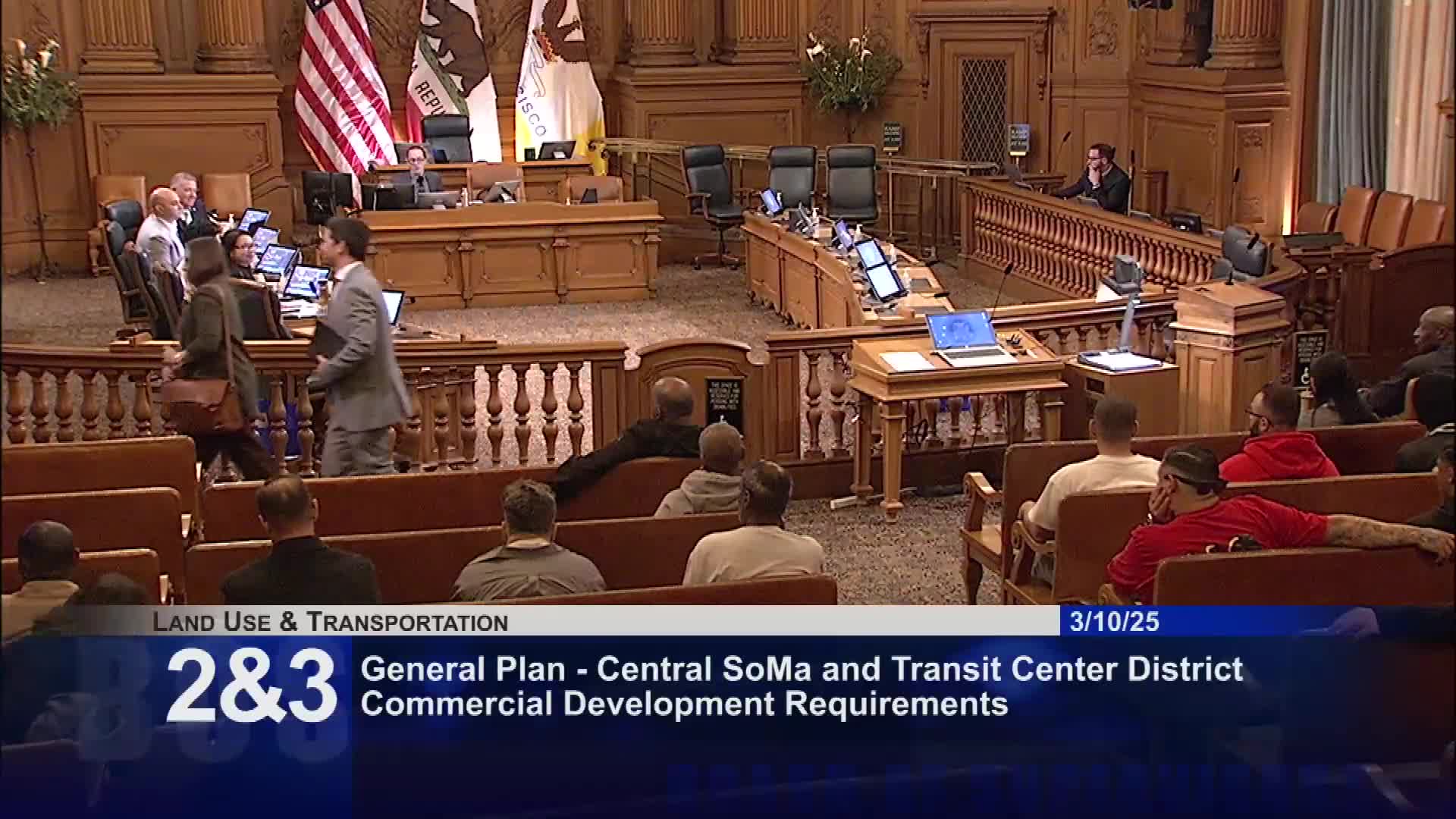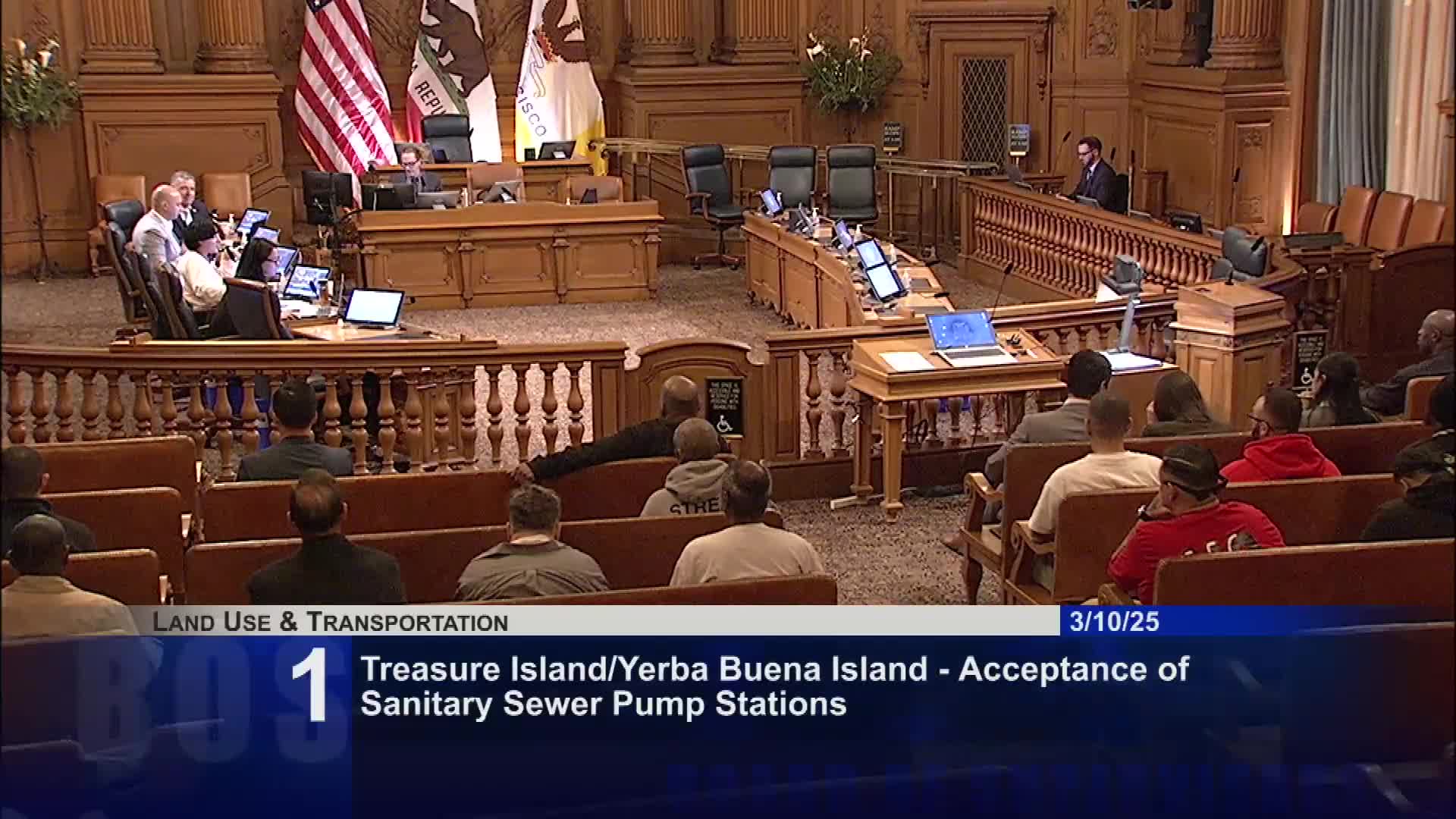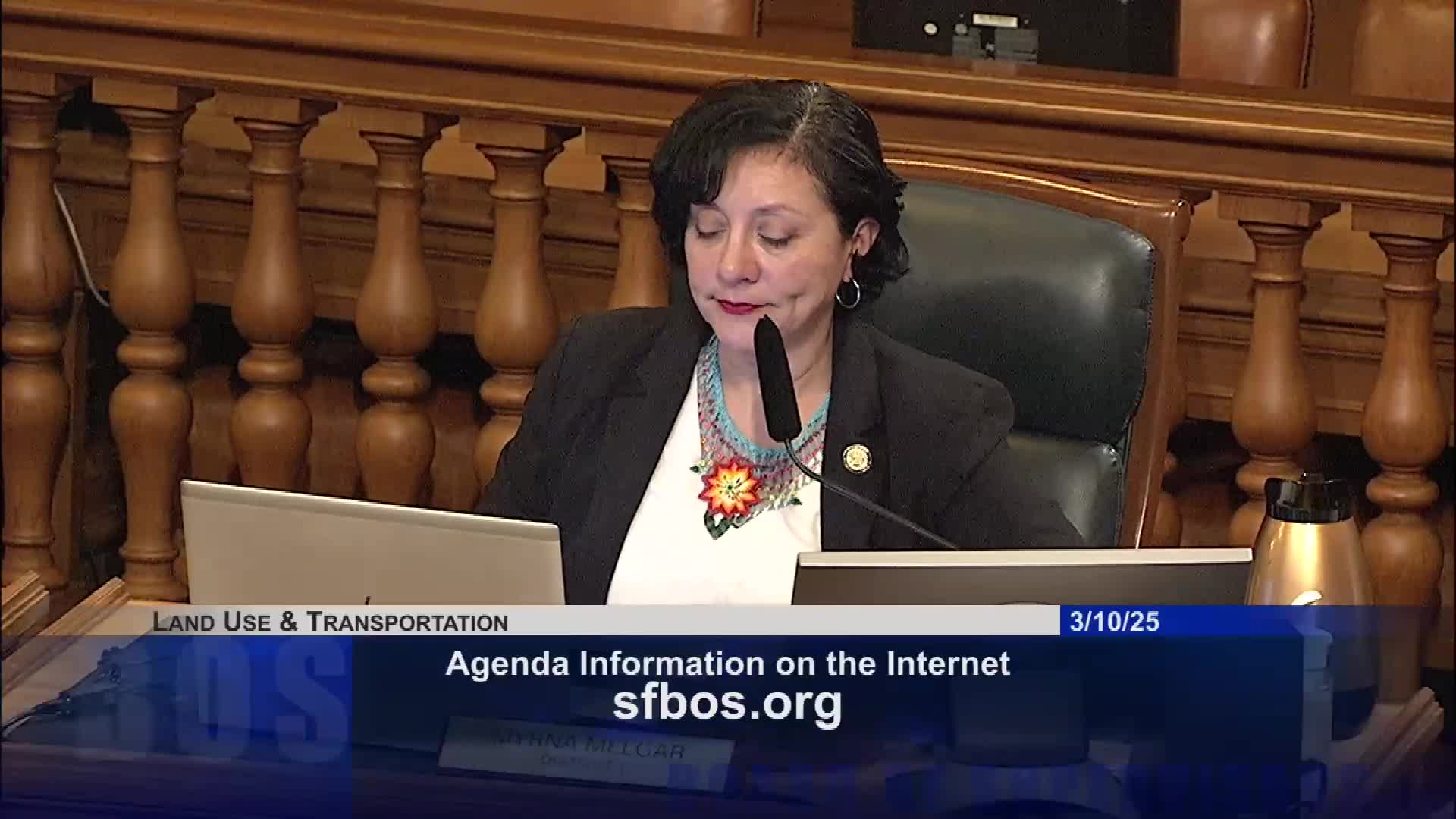Article not found
This article is no longer available. But don't worry—we've gathered other articles that discuss the same topic.

Committee narrows interim-housing-for-hotels ordinance, adopts first amendments and continues item for further review

Committee backs changes easing commercial requirements in Central SoMa, sends amendments to full Board

